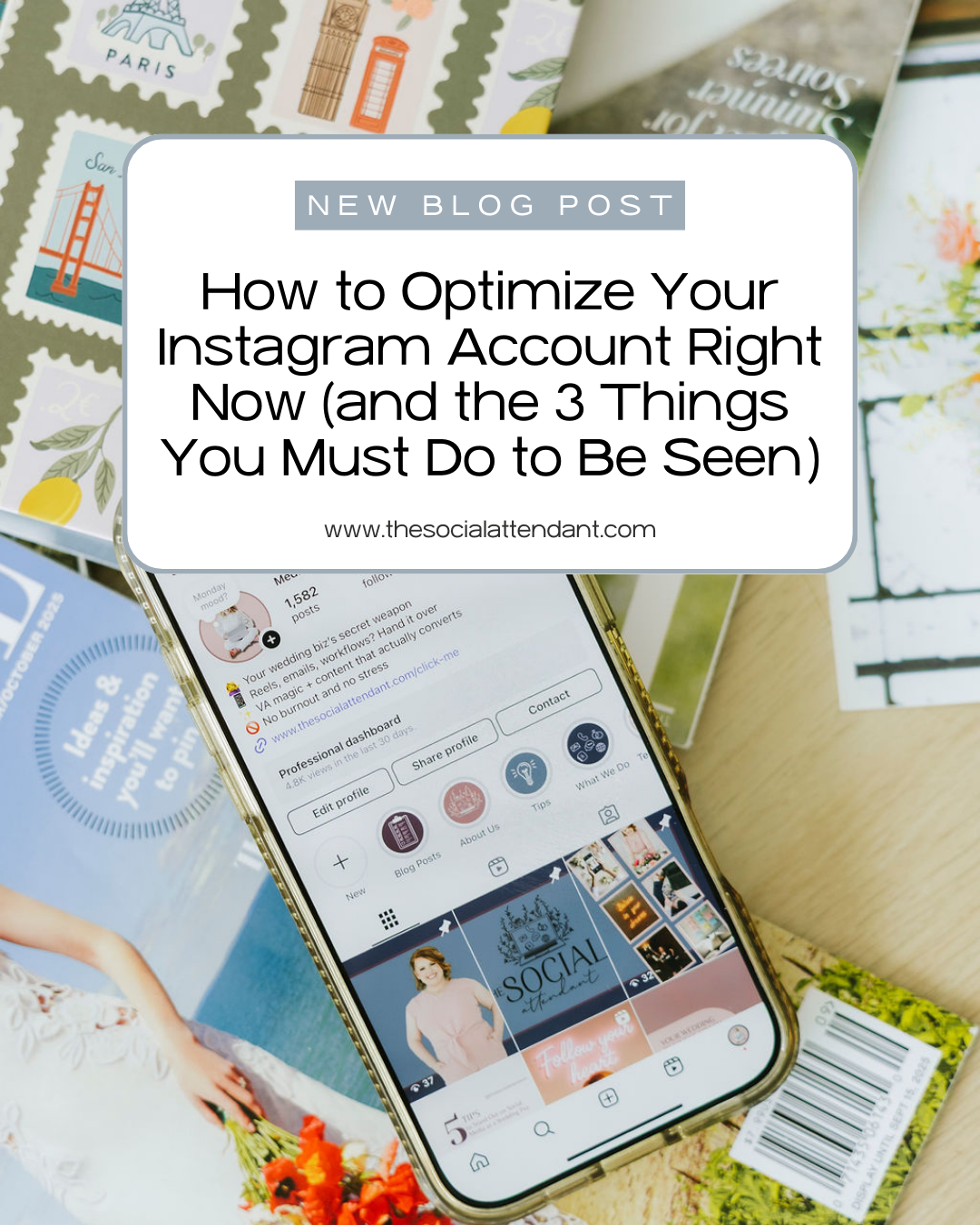What to Do When Your Client Hires a Vendor You Can’t Work With
📋 Blog Highlights
Boundaries Build Businesses
Running into a vendor you just can’t work with doesn’t make you unprofessional—it means it’s time to revisit your boundaries. Whether it’s a one-time red flag or a vendor you’ll never team up with again, a solid vendor clause in your contract is the ultimate peacekeeper.
Communication Over Confrontation
When your couple books a problematic vendor, don’t panic—communicate. By approaching the conversation with empathy and professionalism, you protect your brand, your sanity, and your client’s experience (without feeding the drama).
Your Contract Should Do the Heavy Lifting
If you don’t have a “preferred and non-preferred vendor clause” in your agreement—add one ASAP. It sets expectations, reduces risk, and gives you the confidence to say “yes” or “no” based on what serves everyone’s best interest.
Let’s talk about a real wedding-world dilemma:
You’re vibing with a couple, planning their dream day, and then—BOOM—you see the name.
That vendor. The one on your “do not work with” list. The one you’ve had a seriously bad experience with. The one who makes even the most seasoned pros go… uh-oh.
Now what?
This situation can feel awkward, uncomfortable, and honestly… a little disheartening. But it doesn’t have to derail the entire relationship.
Let’s walk through exactly how to handle it like the confident, professional wedding pro you are—with boundaries, clarity, and integrity leading the way.
🚩 Step 1: Acknowledge the Situation (But Don’t Panic)
Finding out your client booked someone on your “do not work with” list can be a gut-punch—but it’s not the end of the world.
First, take a deep breath.
You don’t need to go into panic mode, and you definitely don’t need to fire off a dramatic email or go venting online.
Instead:
Gather the facts (What is your past experience with this vendor?)
Review your contract (Do you have a vendor clause included?)
Decide if this is a “work through it” moment or a deal-breaker
✅ Step 2: Revisit Your Boundaries—Do You Have a Vendor Clause?
A vendor clause is your best friend in this situation. It should state something like:
“In order to best serve our clients and maintain a positive working environment, [Your Company Name] reserves the right to not work alongside vendors whose practices have previously caused conflict, risk, or stress to clients or our team.”
If this clause exists in your contract and you’ve listed this vendor previously, you’re within your rights to request a change.
But if it’s not in writing?
You’re going to have to approach this with diplomacy and professionalism—and maybe a reminder to yourself to update your contract for the future (don’t worry, we’ve all been there!).
💬 Step 3: Talk to Your Client (Professionally and Kindly)
Now comes the hardest part—talking to your couple.
Here’s how to approach it with clarity and care:
“Hi [Client Name], I noticed you’ve contracted [Vendor Name] for your wedding. I want to be upfront with you that we’ve had difficult experiences working with this vendor in the past that have impacted our ability to serve clients well. Out of respect for your investment and your overall experience, I’d love to talk about a potential solution together.”
Here’s what this does: ✅ It keeps the focus on your client’s experience
✅ It avoids gossip or drama
✅ It opens the door to collaboration, not confrontation
🧠 Step 4: Decide: Can You Proceed… or Not?
This is the moment of truth.
Ask yourself honestly:
Can you work professionally with this vendor again?
Will this compromise your quality of work or your team’s wellbeing?
Is this a risk to your reputation, client experience, or legal safety?
If the answer is yes to any of those questions—it’s time to draw the line.
It’s okay to say:
“Unfortunately, based on past experience and our internal policies, I won’t be able to move forward with this event if [Vendor Name] remains part of the vendor team. I completely understand if you wish to keep them, and I’ll help make the transition as smooth as possible.”
Yes, that’s hard to say. But boundaries aren’t about being liked—they’re about being respected.
🛡️ Step 5: If You Stay On the Job, Protect Yourself
If you decide to continue working the event, it’s time to document everything and set firm expectations.
✅ Outline communication protocols
✅ Reiterate roles, responsibilities, and expectations
✅ Protect your team from unnecessary contact or conflict
You may also want to notify your attorney or have your contract revised to include a future clause about incompatible vendor experiences.
🤝 Step 6: Learn, Adjust, and Move Forward
Here’s the thing about tough experiences—they teach us.
Use this situation as a catalyst to:
✔️ Add a preferred + non-preferred vendor clause to your contract
✔️ Clarify your onboarding process (ask for vendor lists early!)
✔️ Pre-educate clients on who you work best with and why
This isn’t about being difficult or inflexible. It’s about protecting your energy, your team, and the experience you promise every client.
✨ Final Thoughts: Boundaries Build Businesses
This is your reminder that you’re not being “too much” or “dramatic” for saying I can’t work with them.
You’re being a professional.
You didn’t build your wedding business just to survive chaotic, stressful events. You built it to thrive.
So set the boundaries. Speak up. And never be afraid to walk away when something doesn’t align with your values or vision.
You—and your dream clients—deserve nothing less. 💼💍
At The Social Attendant, we love all things social media and helping wedding professionals take their businesses to the next level. Lori was a wedding planner for 19 years and has been helping wedding creatives like you since 2020 with their social media management, consulting/coaching, and virtual assistant tasks . Let’s chat about how we can help!











